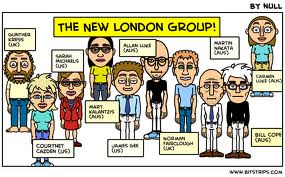
Defining Literacy…not an easy thing
Reading through your reflections so far and noticing the challenge in defining or describing what we mean when we say literacy. Here are some attempts by many of the authors we’ve read this semester:
Definitions/conceptions of literacy from various literacy scholars
literacy as doing, as a social practice (Barton)
literacy as accomplishing things with reading and writing (Brandt)
Girls use literacy to present a particular kind of self. Literate practices served to mark social boundaries. (Finders)
Must study literacy in relation to larger socicultural patterns which they exemplify or reflect. Ethnography must describe literacy events in their sociocultural contexts, so we come to understand such patterns as time and space usage, roles, age, etc are interdependent with the types and features of the literacy events a community develops. (Heath)
Literacy as the ability to read and write situates literacy in the individual person, rather than in society. The practices of social groups are never just literacy practices; they also involve ways of talking, interacting, thinking, valuing, and believing. Can not pull apart literacy practices from non-literacy practices. (Gee)
Learning to write means learning to write in the ways (genres) those in an activity system write. (Russell)
Literacy as a set of socially organized practices, which make use of a symbol system and a technology for producing and disseminating it. Literacy is not simply knowing how to read and write a particular script but applying this knowledge for specific purposes in specific contexts of use. A piece of writing, whatever its form, serves as a flag to signal activities in the ongoing stream of behavior that may have some component skills in common (258). By studying a variety of literacies among the Vai (both in and out of school) they argue: “Instead of generalized changes in cognitive ability, we found localized changes in cognitive skills manifested in esoteric experimental settings. Literacy makes some difference to some skills in some contexts.” (Scribner and Cole)
Literacy as a shorthand for the social practices and conceptions of reading and writing. Ideological model of literacy: concentrate on the specific social practices of reading and writing. Significance placed on the socialization process in the construction of the meaning of literacy for participants. (Street)

 Website:
Website: